The First Known Writer. Ever.
This is a true story: Meet Enheduanna. She lived and wrote 4,274 years ago.
Recently I met a woman named Enheduanna. I’d never heard of her—have you? But she’s someone I want to know more about, because she is now known as the first named writer in the history of humanity.

So would you like a cup of tea? Sometimes when I’m learning about, or reading the work of, a woman who lived long before me, I imagine the two of us sitting down with a mug of something warm, relaxing, nibbling on something yummy, and chatting. Just getting to know each other.
Thanks for reading Question Girl newsletter. I’ve also started a podcast—occasional recordings to go along with Question Girl. Episode #1, called “Question Girl & Enheduenna: Two writers, Four thousand years apart” goes along with this edition of the newsletter you’re reading. If you’re a subscriber, you’ll see it in your mailbox. You can also find it here: questiongirls.substack.com
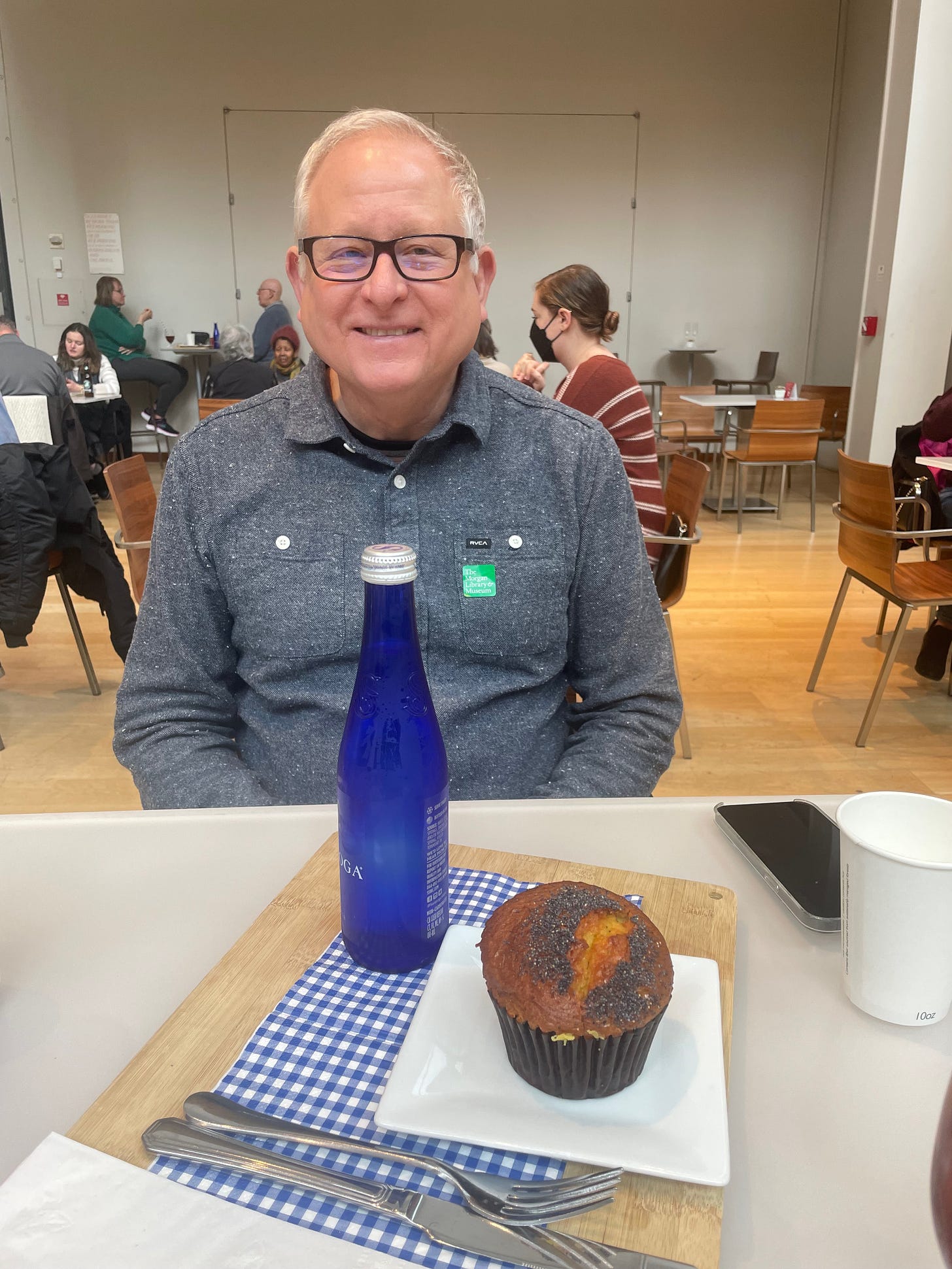
Since I’m a Question Girl (anyone else out there?), I always have lots of questions when I meet someone new. I want to know their story—who they are, where they came from, and what their life journey has been like. Everyone has a story to tell—everyone.
So would you like to join me for this particular conversation…with a woman named Enheduenna? She is a woman of firsts, in the history of humans. Bring your cup and let’s get to know her.
A few quick details first. She is the…
First memoirist we know of.
First woman writer.
The first named writer, period.
And she lived four thousand, two hundred and seventy-four years ago. I had to spell it out because it doesn’t seem real otherwise. That means Enheduanna lived, walked, ate, drank, breathed and wrote on this earth before the time of Jesus.
She also lived before the time of:
Hammurabi and his Code of Laws
King Tut
Moses leading the people of Israel out of Egypt
King Nebuchadnezzar of Babylon
Kings Saul, David, and Solomon
Miriam, Ruth, Rahab, and Esther
The building of the Temple in Jerusalem
Homer, author of The Iliad and the Odyssey
The first Olympic games in Greece
The rise of the Roman Empire
The Great Wall of China
I met the first writer in human history during a quick recent weekend academic research trip to see some treasures at the Morgan Museum and Library in New York. The “She Who Wrote” exhibit tells her story.
Enheduanna had her own scribes (their names are recorded too) and she wrote poetry, personal narrative, prayers and hymns, inscribed in cuneiform with sharpened reeds on clay tablets. Her works were used for centuries in scribal schools, like we use Shakespeare today. She lived in Ur, in Mesopotamia, close to the time of Abraham and the culture was Akkadian/Sumerian. Did he know of her and perhaps read or hear her work?

All of this was thrilling to me. Why? 1) Reading the words of a woman who lived over 4,000 years ago; 2) discovering she was the first identified human writer; 3) confirming that women were educated, literate, creative, had a voice, and were published. What does this mean for women’s contributions to the Bible, especially the New Testament? (Answer: this strengthens my case.)
So why haven’t we heard much about her before? When it comes to ancient women's lived experience, all we have are fragments. Scraps of letters, poetry, and music. There isn’t much existing evidence at all for ancient women who wrote. But they did write, and read, and compose, and create, and we have Enheduanna’s work, these clay tablets thousands of years old, to show us that they did. We have her own words, not filtered through those of others, and we bring to the table our historical imaginations to recover the stories of Enheduanna, and those of many other women, who wrote so very long ago.
Join me next week for more on Enheduanna, as we look at her actual writing. What did she write about? What did she have to say? What did she care about, worry about, work towards? What made her happy? What broke her heart? Who did she serve? What kind of world did she live in? We’ll dig in.
Here’s a question that came into Question Girl recently:
Q: Somewhere you mentioned that you were to begin theological studies with a focus on story telling-- at least I think you said something like that. Is there a place where you share how that decision evolved and what you have discovered so far in the process? I'm genuinely interested. What are you feeling called to do through the degree program or are you walking forward hoping to discover the answer as you go go? Is there something in particular that caught your heart's attention, motivating you to find out more about the program?
A: I'm a storyteller / writer by trade, but my theological studies have a focus on New Testament studies, and specifically women writers and communicators in the New Testament era. I have a Masters in New Testament, and now I'm in a doctoral degree program called Women, Theology and Leadership. What caught my heart is the stories of women, especially in the New Testament. There are so many, and I want to sit down to a cup of tea with each and every one.
I'm using what I am learning and writing about in seminary in several ways:
with writers through West Coast Christian Writers (WCCW), and our annual conference
I’m developing a Theology for Writers program for WCCW
I'm teaching a Theology for Writers workshop at the October 2023 conference
I'm developing my masters thesis into a book, called Books are Alive: A Theology of Writing
My doctoral work will likely become a book (on the contributions of women to the writing of the New Testament)
I joined my local Lutheran Church recently and am considering lay ministry in that denomination
Several other writing projects related to what I'm learning and doing in seminary
I started a weekly Substack newsletter called Question Girl, where I write about these topics as well (that’s here!)
And now a question for you: Are you interested in seminary studies at all? There's a great way to dip your toe through Seminary Now--it's an online video library like Netflix with professors and scholars from Northern Seminary (where I attend) and you can try a course for free with Scot McKnight, my favorite professor ever: Seminary Now


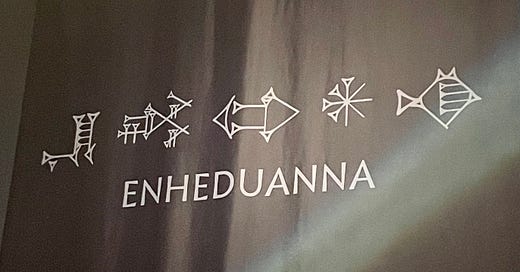


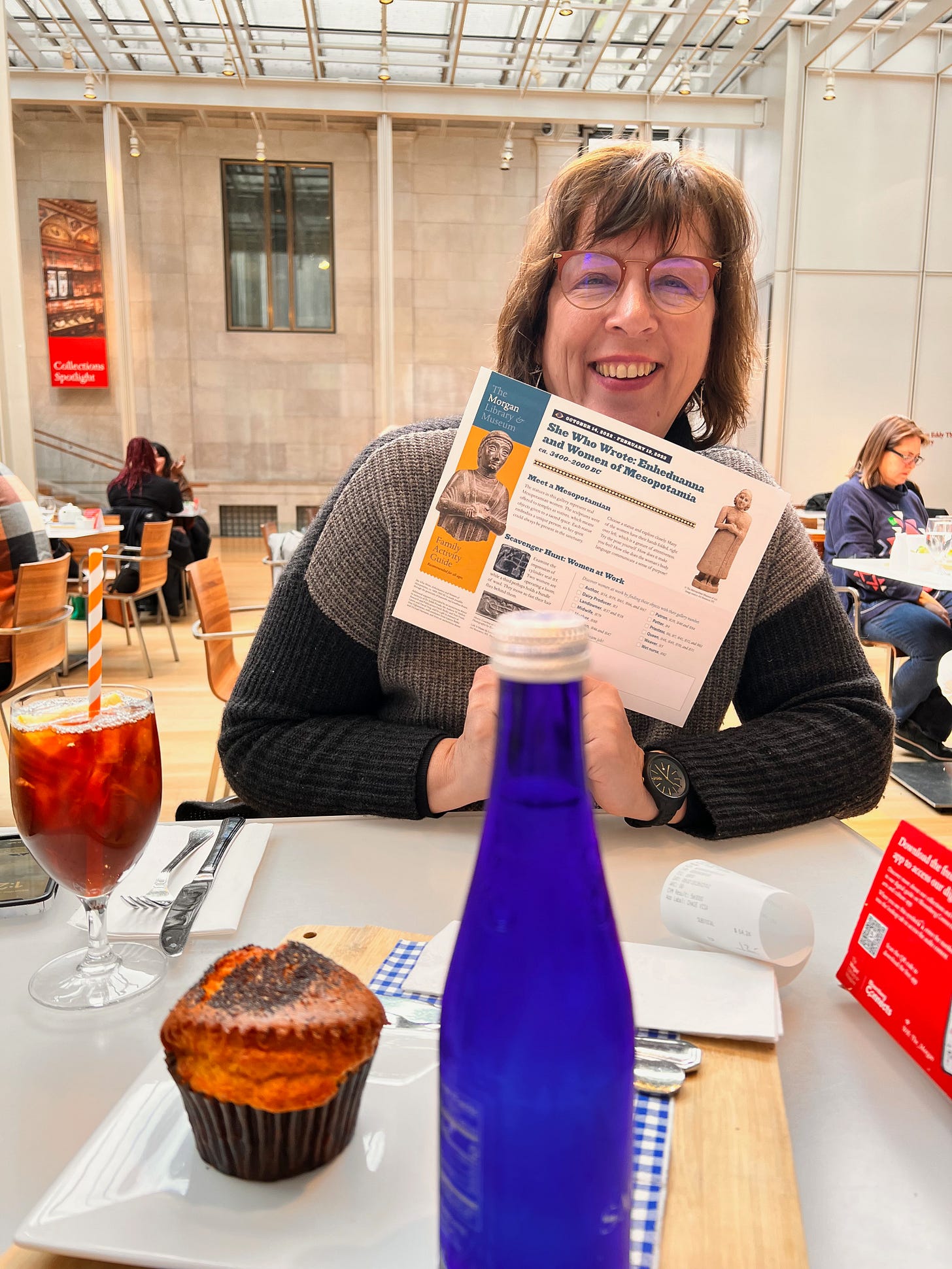
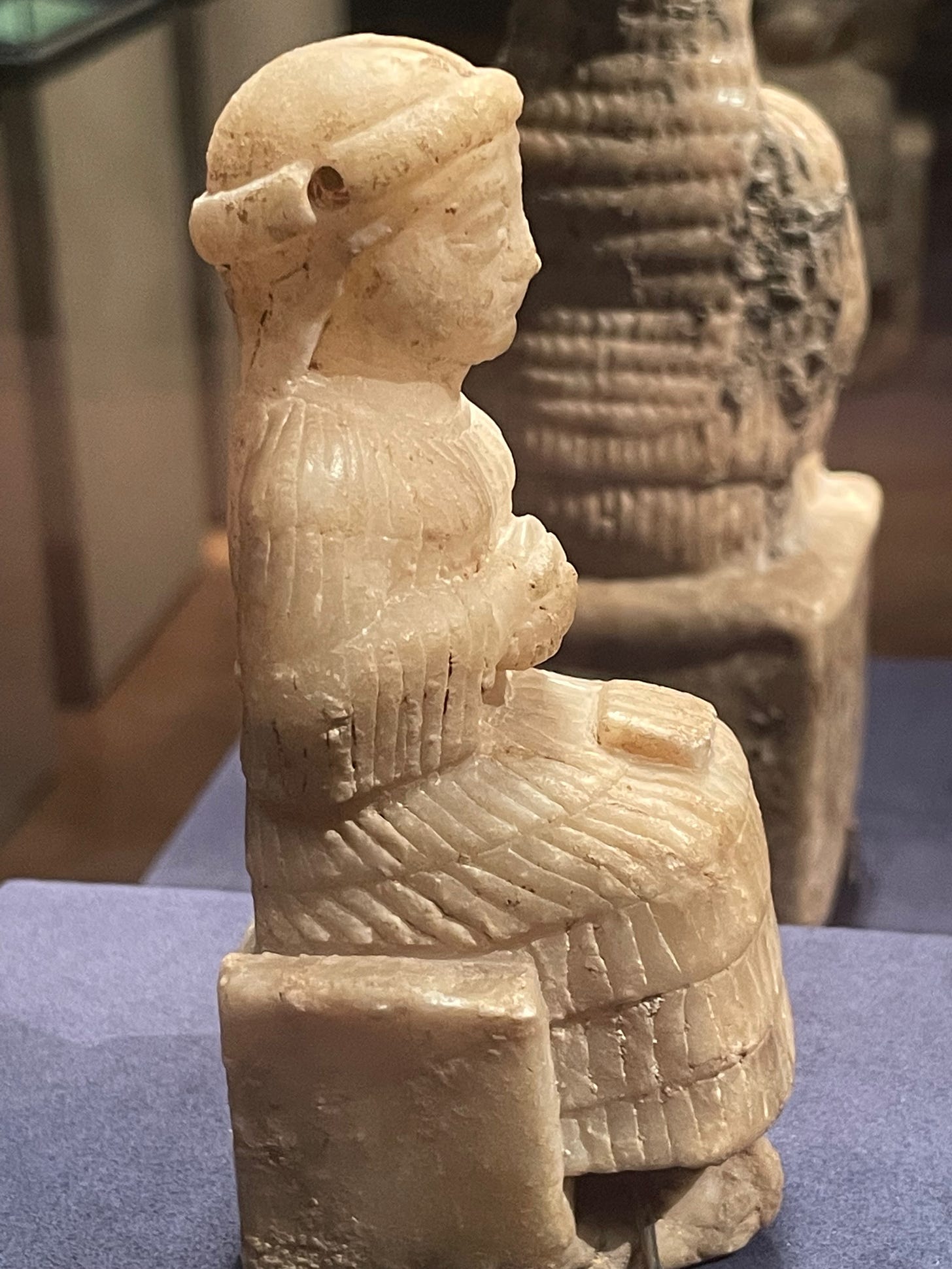
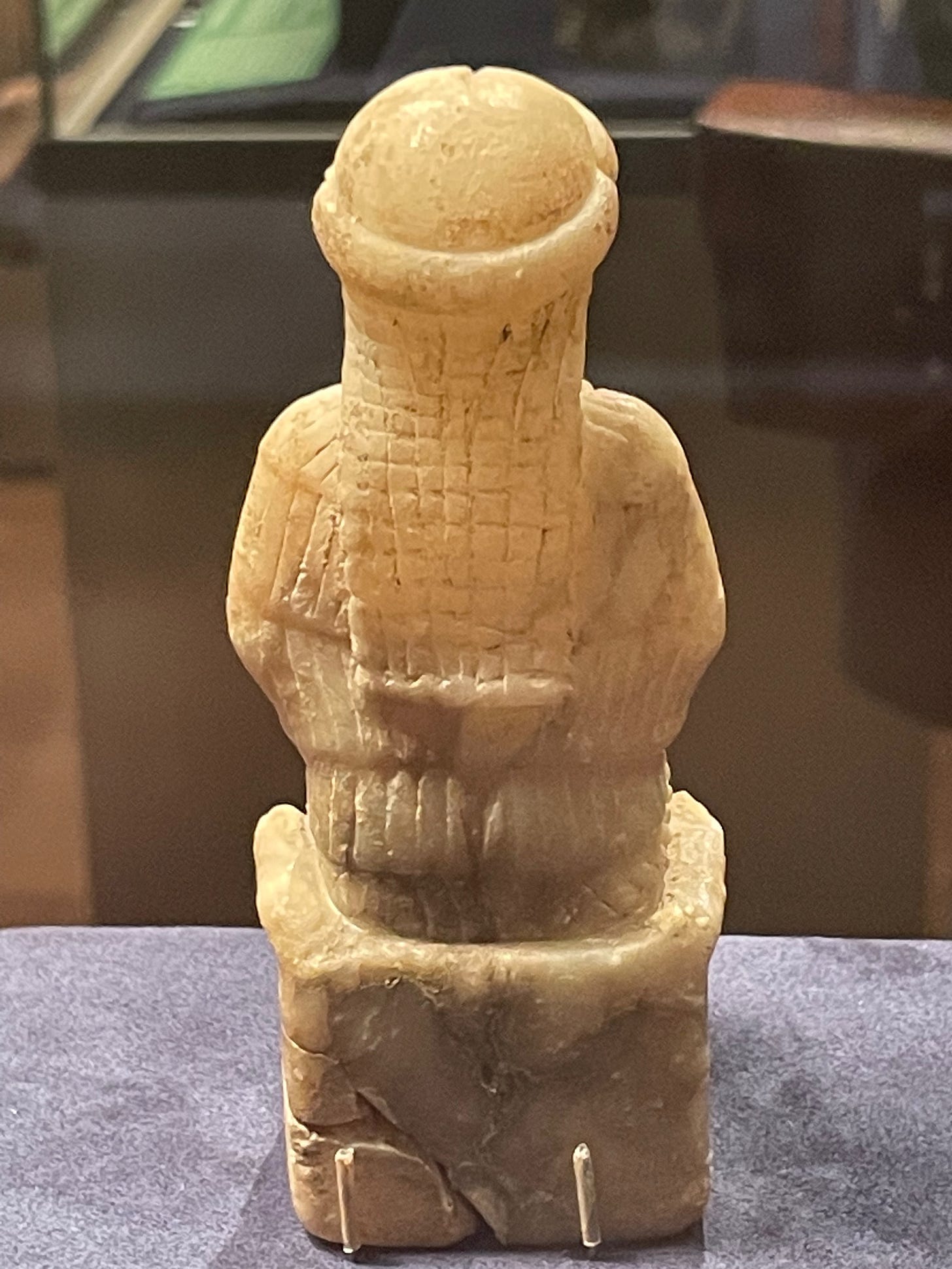

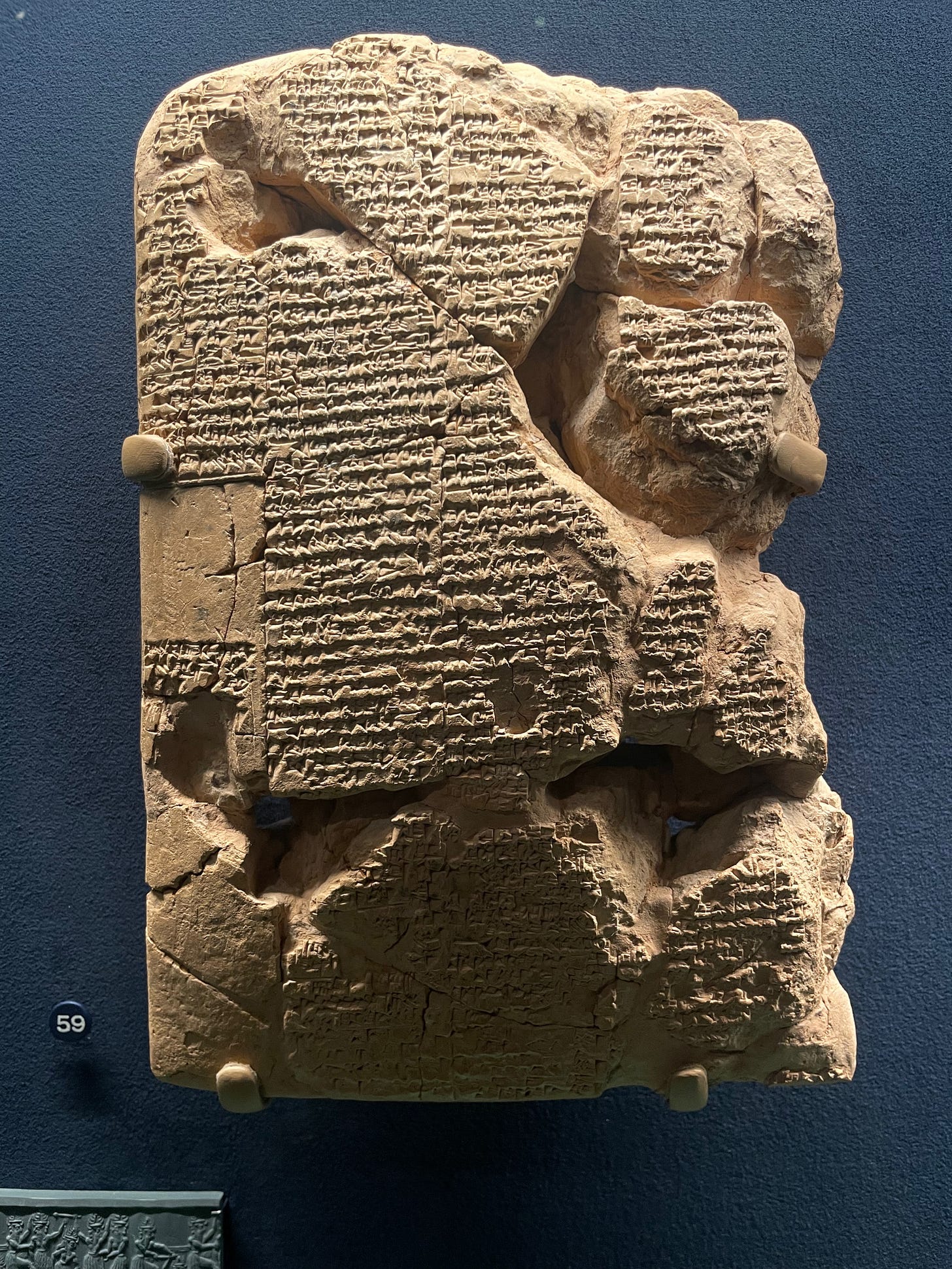
Fascinating! I’m glad it popped up into my feed today, as I see this is an older post, before my entry into the world of Substack.
I loved meeting Enheduanna, this morning. I’m encouraged. You are educating yourself to help us faith driven women become more encouraged and emboldened to communicate or do whatever it is He has moved us to take action on. You’re a perfect girl for the job!